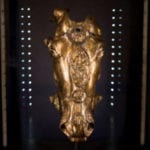 Movies and TV
Movies and TV  Movies and TV
Movies and TV  Weird Stuff
Weird Stuff 10 Times Real Laws Were Based on Bizarre Hypotheticals
 Animals
Animals 10 Inspiring Tales of Horses Being Human
 Mysteries
Mysteries Top 10 Haunting Facts About the Ghost Ship MV Alta
 History
History 10 Surprising Stories About the Texas Rangers
 Humans
Humans 10 Philosophers Who Were Driven Mad by Their Own Theories
 Miscellaneous
Miscellaneous 10 Video-Game-Worthy Weapons and Armors from History
 Weird Stuff
Weird Stuff 10 Psychics Who Accurately Predicted Wartime Events
 The Arts
The Arts 10 Pieces of Art Inspired by a Broken Heart
 Health
Health 10 Science Fiction-Sounding New Medical Treatments
 Movies and TV
Movies and TV 10 Movies That Get Elite Jobs Right, According to Experts
 Weird Stuff
Weird Stuff 10 Times Real Laws Were Based on Bizarre Hypotheticals
 Animals
Animals 10 Inspiring Tales of Horses Being Human
Who's Behind Listverse?

Jamie Frater
Head Editor
Jamie founded Listverse due to an insatiable desire to share fascinating, obscure, and bizarre facts. He has been a guest speaker on numerous national radio and television stations and is a five time published author.
More About Us Mysteries
Mysteries Top 10 Haunting Facts About the Ghost Ship MV Alta
 History
History 10 Surprising Stories About the Texas Rangers
 Humans
Humans 10 Philosophers Who Were Driven Mad by Their Own Theories
 Miscellaneous
Miscellaneous 10 Video-Game-Worthy Weapons and Armors from History
 Weird Stuff
Weird Stuff 10 Psychics Who Accurately Predicted Wartime Events
 The Arts
The Arts 10 Pieces of Art Inspired by a Broken Heart
 Health
Health 10 Science Fiction-Sounding New Medical Treatments
10 Facts About Christianity In Ancient Rome
Ancient Rome has a captivating aura that lures modern people despite the empire’s fall centuries ago. It rivals the fascination of ancient Greece. The ancient Romans gave us Roman numerals, sewer systems, and Julius Caesar. No doubt they were an influential people with all their contributions and heroes.
But they had a dark side that is also part of their legacy. Ancient Rome was a hotbed of persecution and cruelty for Christians who lived there. Even the Apostle Paul wrote of the painful tribulations that Christians faced at the hands of the Romans.
After all, pagans were suspicious of the Christian refusal to sacrifice to the Roman gods and often believed the worst rumors about this minority group. They regarded Christianity as “superstition.”
Christians were slandered and scapegoated by the larger pagan population who found them odd, scary, and deserving of death. Christianity had a rough start and powerful enemies. But in AD 313, Emperor Constantine issued the Edict of Milan, which accepted Christianity and gave it legal status in the Roman Empire.
10 Christians Were Sentenced Work In The Mines

Working in the mines sounds like a job that an average Joe would have. It doesn’t sound scary, like getting eaten by a lion or being burned alive. Also, it appears to be a slap-on-the-wrist punishment compared to the typically harsh punishments that are associated with ancient Romans.
So was it really a “punishment”?
The proper Roman term for condemning some to the mines was damnatio ad metalla (“condemned to the mines”). Christians were not always immediately killed by the Romans. Instead, for their transgressions, Christians could be sentenced to work in the mines until they died.
Conditions in the mines were brutal. Believe it or not, it was considered to be the most severe punishment other than execution. One could describe it as “a slow death sentence” or “being worked to death.”[1]
9 Persecution Occurred Only At The Local Level Until The Middle Of The Third Century
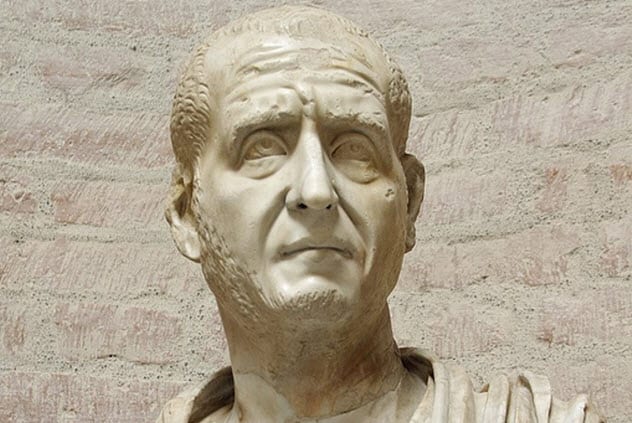
For a while, Christians dealt with Roman prejudice mostly by townspeople. But in 249, Emperor Decius initiated the first empire-wide persecution. He killed Philip the Arab, who was sympathetic to the Christian faith.
Emperor Decius was credited for kick-starting the downward treatment of Roman Christians from bad to worse. Persecution often occurred at a local level, but Decius used his power to make the suffering of the Gospel followers worse than it had ever been.[2]
He did this by issuing an edict that ordered everyone in the Roman Empire to perform a sacrifice to the Roman gods and the Roman emperor. He had Bibles burned and was just as bad as Nero in terms of oppressing this religious sect, though it is hard to compete with the infamy of Nero.
8 The First Christian Emperor Was Philip The Arab, Not Constantine
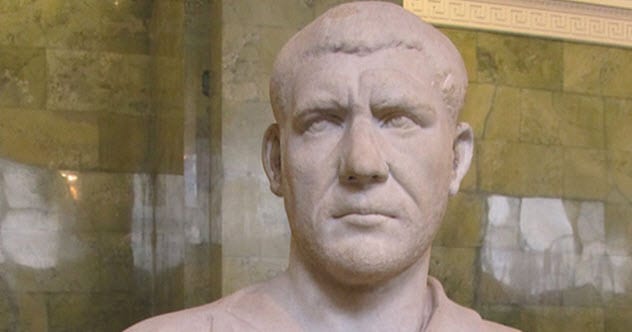
Constantine is widely credited as the first Roman emperor to convert to Christianity. However, Philip the Arab was celebrating Easter with Christians before Constantine became emperor.
Philip, the son of a sheik, showed a kind face to the Christians and was the first Christian emperor. Early Christian writers commented that he was sympathetic to the Christian faith.
Decius, Philip’s killer and successor, reinforced the worship of pagan gods. This may have been a response to what he saw as a dangerous tendency by Philip to tolerate a new religion. Modern historians would dismiss this claim, but early Christians believed that Philip the Arab was a secret Christian.[3]
7 A Roman Emperor Who Banned Christianity Saved A Group Of Christians From A Mob
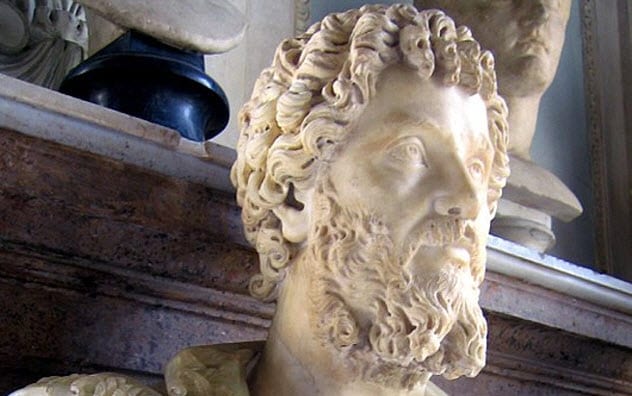
Roman Emperor Septimius Severus issued an edict banning the conversion to Judaism and Christianity. He was born to Publius Septimius Geta and Fulvia Pia, a wealthy and distinguished family of equestrian rank. Persecutions against Christians were common during his reign, and his edict banning the Christian faith makes this emperor seem unlikely to lift a finger to help a Christian in crisis.
Who could picture him playing a hero?
According to Tertullian, a Christian author from Carthage, Severus actually intervened to save high-born Christians from “the mob” that wanted to kill them and even had a Christian as his own personal physician.
Although not an ally of this minority, Severus still saved their lives from a brutal demise at least once in his reign. But the typical experience for most Christians during the reign of this emperor was unpleasant and often fatal.[4]
6 Christians Were Accused Of Hating The Human Race

When killing was not an option, slander was another weapon employed by ancient Romans to make life a living hell for Christians. They were accused of having odio humani generis (“hatred of the human race”).[5]
Pagan Romans believed that Christians hated humanity because they refused to participate in Rome’s social and civic life that intertwined with pagan worship. Christians were seen as antisocial and kept to themselves. They met at night and held secret assemblies. They were also accused of committing horrible crimes, such as murder and incest.
5 The Story Of A Noblewoman And A Slave Girl
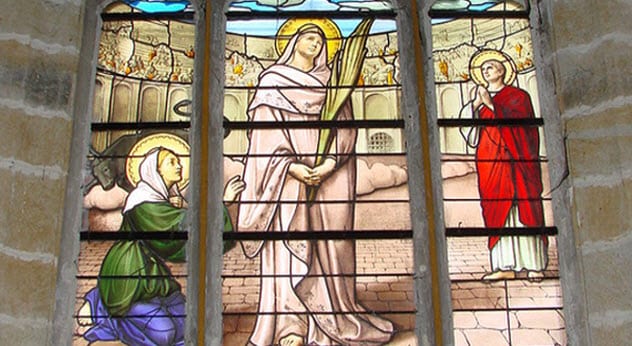
A poignant story of the breaking down of class distinctions came out of the persecution in Carthage. Perpetua, a young noblewoman, and Felicitas, a slave girl, held hands and exchanged a kiss of peace before being thrown to wild animals at a public festival. These women broke the law by converting to Christianity, which was forbidden during the reign of Emperor Septimus Severus.[6]
Members of Roman society were big believers in hierarchy. Class was important. Romans made a clear distinction of which class each person belonged to.
Although these two woman had very different stations in life, they did not look at each as a noble and slave but as sisters in Christ. It seems that faith can bring people together. Their story has been retold by Christians for many years after their martyrdom.
4 Ritual Cannibalism

Everyone has problems trying to wrap their heads around the customs and beliefs of people from different cultures and religions. In the biggest misunderstanding of all time, many Romans believed that Christians were cannibals because they thought that Christians actually ate the “flesh and blood” of Christ.
Romans mistook the ritual of Eucharist as cannibalism, which further damaged the Christians in their eyes. Much of the understanding of Christianity was in the form of gossip and local prejudice. An innocent ritual was damaged by a vicious lie.[7]
Ironically, the early Christians called the Romans cannibals for roasting their victims at the stake. Romans also drank the blood of gladiators as a remedy for epilepsy.
3 Christians And The Roman Army
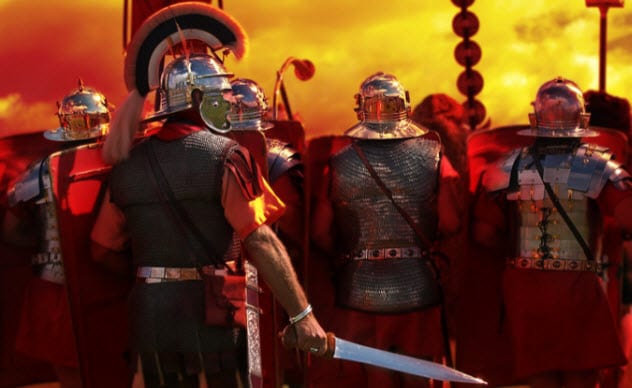
Christians defied the establishment of the mighty empire by refusing to participate as soldiers in the army. The Roman military was inseparable from Roman religion. Soldiers participated in pagan idolatry, which was unacceptable. Christians who were already in the army publicly refused to participate in sacrifice.
In 302, a Christian interrupted a public sacrifice in progress at Antioch. Emperor Diocletian started persecuting Christians. He demanded that all Christian soldiers resign from the Roman army. The relationship between the army and the new religious sect was messy, especially when soldiers were expected to defend and expand an empire that treated them poorly.[8]
2 Constantine Abolished Tattoos Because Of Christianity

In the Bible, Leviticus 19:28 states: “Do not cut your bodies for the dead or put tattoo marks on yourselves. I am the LORD.” Only slaves and convicted criminals received tattoos in Rome. It was considered barbaric to have tattoos on the body. As criminals were seen as the lowest people in society, it seems fitting.[9]
Around AD 325, Emperor Constantine outlawed tattooing of the face because he believed that the face was made in God’s image and should not be disfigured. The newly converted Constantine was inspired by Christian teachings and caused tattoos to go out of style, even for criminals.
1 Christians Were Accused Of Being Atheists
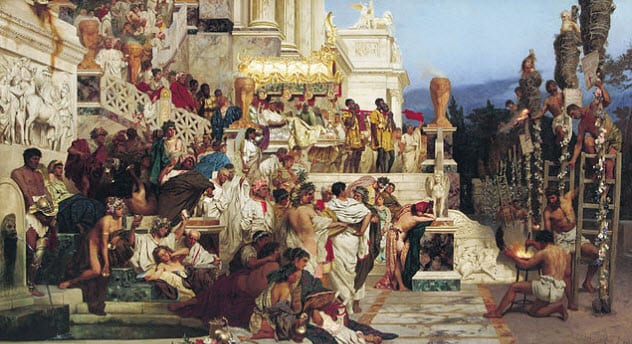
Christians have persecuted, silenced, mocked, and murdered atheists. In the minds of the ancient Romans, however, Christians were atheists. Romans found all kinds of accusations to lay on the early church members. The rationale: Christian denial of the other gods and refusal to worship emperors.
Thus, Christians were accused of treason. Ancient Romans couldn’t fathom an imageless worship for they built statues of their gods. This made the Christians stand out.
Atheism is the absence of belief in the existence of deities. Meanwhile, Christians proudly worship God. It is hard to think of the two beliefs as the same thing, especially with atheists like Richard Dawkins debunking Christian doctrines.
The irony is that ancient Rome gave Christianity some of its earliest martyrs because they were considered atheists.[10]
Summer Gallardo was named after Summer Sanders. She enjoys comic books, math, history, and making lists.
Read more little-known facts about ancient Rome on 10 Little-Known Facts About Ancient Rome and 10 Facts About Ancient Rome That Are Rarely Covered In School.





